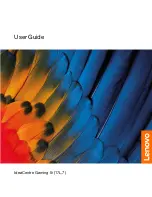
NEW EMPL.LTR
This would be rejected by MS-DOS because of the space in
the filename.
Certain filename extensions have been set aside so that MS-DOS
can recognize program files. These are:
COM
(for COMMAND file)
EXE
(for EXECUTABLE file)
B A T
(for BATCH file)
Program files should always have one of these three filename
extensions. Data files should never use these reserved
extensions. They can, however, use any other extension.
Filename extensions are optional with data files, so you can
leave them off entirely, if you want. Using filename extensions
with data files allows you to have many different variations for
a set of filenames. For instance, different chapters of a book
might be named:
CHAPTER.001
CHAPTER.002
CHAPTER.003
and so on.
Like MS-DOS commands, filenames and extensions can be
entered in either upper or lower case, but are always displayed
on the screen in upper case. However, since MS-DOS converts
lower case filenames into upper case, it is possible to
inadvertently erase an existing file by saving a new file with a
lower case name. To be safe, always make sure that you have
given a unique name to each file on a disk.
4-22
Using
MS-DOS With Your
Computer
Содержание CW3S20A Canadian Product
Страница 1: ...SX386E OPERATIONS GUIDE...
Страница 17: ...Appendix C Connector Pinouts I OPorts C l Expansion Slot Connectors C 5 Contents xvii...
Страница 145: ...Figure 7 6 Mounting the Internal Hard Disk Drive 7 16 Expanding Your System...
Страница 148: ...l Memory Bank Configurations l BIOS ROM 64K byte 150ns 2ea Specifications A 3...
















































